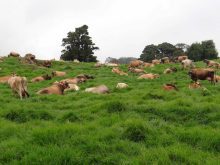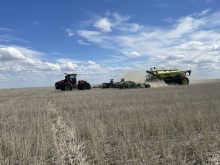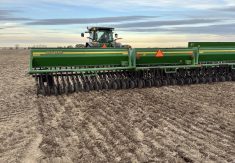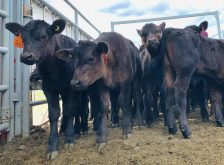When Alberta Agriculture’s ‘Call of the Land’ radio show first aired on April 1, 1953, space travel, cellphones and the Internet were still science fiction. No one could have known the show would survive six decades, or eventually be a podcast available on the Internet.
‘Call of the Land,’ Canada’s only publicly funded rural radio show, celebrated its 60th anniversary, April 1, 2013. Airing five times a week and reaching more than 110,000 listeners, it keeps the rural community updated on technologies, trends, issues and government programs.
When it first began in 1953, the 10-minute-long program was carried on six radio stations. In the early 1990s, it was shortened to nine minutes and is currently carried by 27 radio stations in Alberta, and two in British Columbia.
Read Also
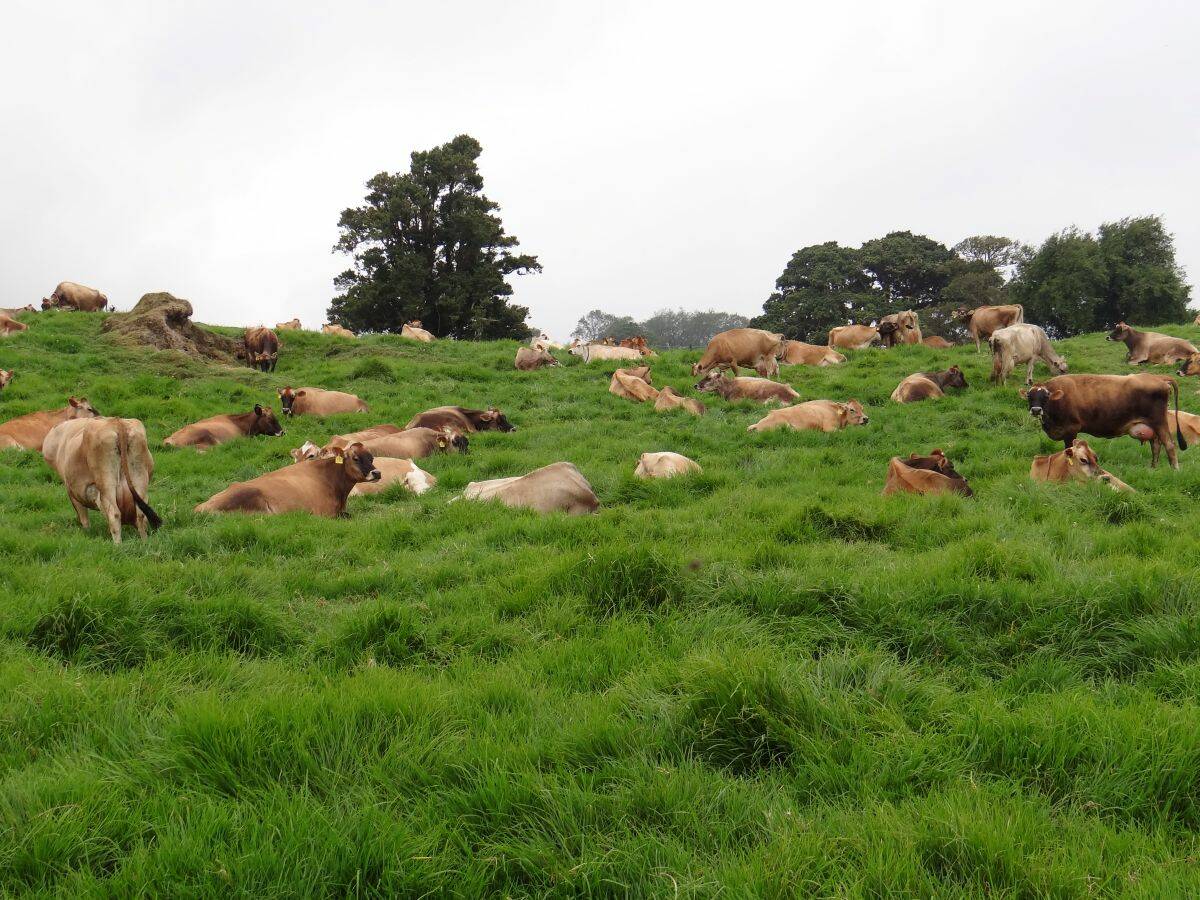
Is inflammation the real cause of milk fever in cattle?
UAlberta researcher Burim Ametaj’s theory challenges 200 hundred years of science and his work may change the approach for treatment.
Jack Howell began hosting the show in 1970 and stayed for 36 years before retiring in 2006 and passing the reins to Caitlynn Reesor, the show’s current host. The first two people who worked on the show were Everett McCrimmon and Stuart Wilton. Wilton, who still resides in Olds, was the program’s first roving reporter.
Howell, a farm kid from Saskatchewan, had obtained his degree in agriculture from the University of Alberta and was an assistant district agriculturalist in Ponoka when he took the job as host.
“I had the most experience of anybody who had ever been hired up to that time and that was very little. I did student radio in university,” said Howell.
Howell’s job as host allowed him to travel all over the world. He even went to Australia and New Zealand on an “educational leave tour,” accompanying the deputy minister. In 1972, he toured Scandinavia and the Soviet Union.
“The idea was to try and reach farmers in every corner of the province, north to south. We had contracts with stations that could cover that,” he said.
Just like the industry it covers, the technology behind ‘Call of the Land’ has changed dramatically over the years.
“When the program started, it was done with large reel to reels,” said Howell, who was always able to edit electronically, but used a heavy portable recorder for taping. The technology eventually changed to cassettes, and then to mini-disc players.
Reesor now tapes the show using a digital recorder. All of the editing is done digitally and the program is now sent to the stations digitally, rather than through the mail, two episodes in advance. The show is now available online, and people can listen to podcasts, listen to the show in I-tunes and read transcripts of the show.
Reesor had big shoes to fill when she took over the position as host, but she spent a month training with Howell before she had to run the show on her own. “Jack and I did what he called the hello-goodbye tour,” said Reesor. “I took her around the province and introduced her to the people she needed to know in the central and south,”said Howell. At Howell’s retirement party, former agriculture minister Shirley McClellan told Reesor she was taking the position over from “an icon of trust.”
Reesor grew up in Camrose, and had been working in radio since 1990. Prior to becoming the host of ‘Call of the Land,’ she was involved with the agriculture show at CFCW for 10 years.
“For the first year, when I would introduce myself to people, they would say, ‘Oh, you’re the new Jack.’”
She enjoys the variety and the constantly changing nature of the program and agriculture. Unlike in Howell’s time, when the program was mailed out to stations, and two programs needed to be planned ahead of time, Reesor can adjust the program to breaking news.
She said people in agriculture have always been generous to her, even though she doesn’t have an agricultural background herself.
“People in the industry are so helpful and so willing to explain things. You never feel that you’re asking a silly question because they just want to get the story out,” she said.



